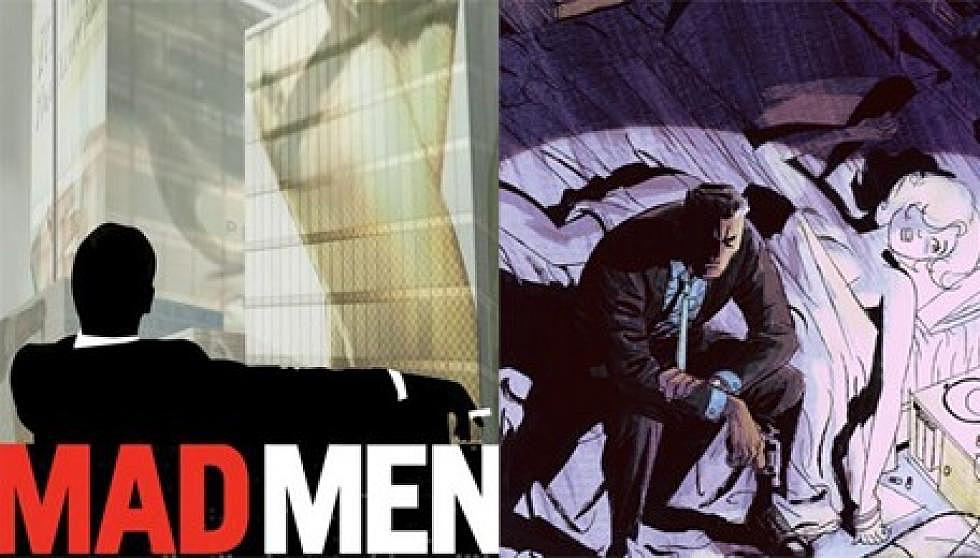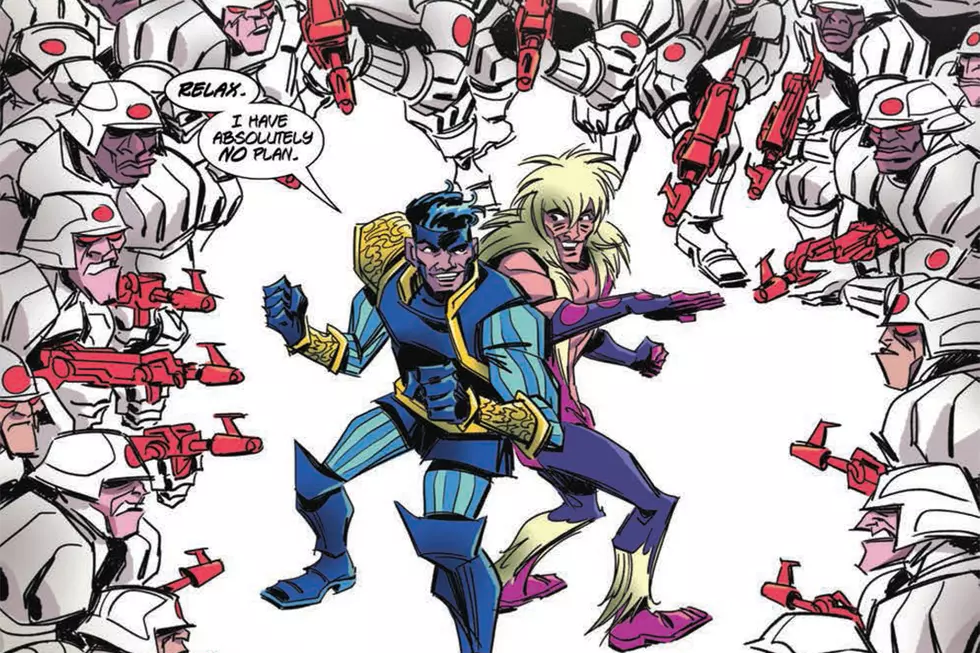
Rec Room: ‘Mad Men’ & ‘Parker: The Hunter’
The Rec Room: Where ComicsAlliance's Brendan McGuirk uses the stuff you already love to suggest the comics that you will.
.jpg)
If you like "Mad Men," then try "Parker: The Hunter."
Both the AMC television series and Darwyn Cooke's comic adaptation of the Richard Stark crime novels are highly stylized portrayals of 1960's New York City where men are men, women are foxy and submissive, and the world is waiting to be conquered by those up to the task. The stories and genres may be very different, but the tones they strike are similar, and both are stories with leading men whose willful strength and pointed rigidity the world no longer accommodates. Bastions of their day, they are the unlikely heroes of a bygone era.
"Mad Men" centers on Don Draper, an aloof, smooth-operating ad man with the ability to get whatever he wants, simply by willing it so. Parker from "The Hunter" a is criminal in the noir tradition, a remorseless, a take-no-B.S. crook who allows nothing and no one get in the way of his vendetta. Both men are blank slates of a sort, who have no interest in sharing their pasts and personal histories, seeing them as a weakness to be amputated for the greater good. Steely and controlled, their emotions simmer under the surface, driving them but never ruling them as they let their actions do the talking.Neither Draper nor Parker can be fully explained without appreciating the world surrounding them. They are misogynistic men who will accept nothing less than submissive deference from the women surrounding them, and their environment obliges. Nor do they only command respect from women; their super-masculinity is so imposing that it makes cowards out of any other men sharing the room. Simply put, these are alpha males. These are the men built the world, or at least the world as they know it, and as such expect obedience. And though both of these stories are set only 45 or so years in the past, the social rules of engagement are so drastically different that theirs feels like a wholly different world.
They make for hugely compelling leads largely because this, and how unlikely it seems that they could exist in the modern day. They represent an extinct breed of world-dominators, far different from our current era of committee mentality and manic neuroses. In fact, a major storyline of "Mad Men"'s first season is Draper's absolute dismissal of his wife's need for psychiatric care, so sure is he that people can control themselves purely through mental fortitude. Anything can be had, simply by deciding it, or taking it.
Of course, both Draper and Parker have their weaker moments: Draper faces a world that is changing all around him, with social and cultural revolutions that threaten his meticulously assembled persona of power, while Parker takes on the entirety of organized crime, equipped with his mighty fists alone, and bites off more, perhaps, than even he can chew. These moments are significant because they are so unusual, and that they contrast so sharply with their forceful presences.
If you were among the millions eagerly awaiting this past weekend's "Mad Men" premiere, you owe it to yourself to check out Darwyn Cooke's brilliant crime-noir piece, "Parker: The Hunter." It's the kind of book Don Draper would tell you to read. And if he told you to, you'd listen.
More From ComicsAlliance









